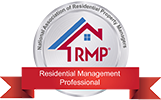Imagine, if you will: you are happily receiving rent every month from the tenants leasing out your Ocean Blvd condo you used to live in. Everything seems great.
Then you receive a violation notice. Turns out your tenants threw a crazy party resulting in various noise violations and complaints.
Now the HOA board is asking YOU to show up to a hearing. After reading more closely you discover that you may subject to significant fines for something you did not personally do. Now it is your problem!
Tenant HOA Violations - Homeowners’ associations hold landlords directly responsible for violations committed and damage caused by their tenants.
Although tenants, guests, and visitors should follow homeowner’s association rules, they are not directly subject to the CC&Rs since they are not the actual members of the association. The homeowners are the members.
If your tenants are the ones that hold a party all night long, it is the landlord, not the tenant that goes in front of the homeowner's association. We have several real-life examples of landlords being called to hearing for the outrageous acts of their tenants.
Since the landlords are the members, associations hold them directly responsible for violations or damage caused by their tenants, guests, or visitors. Otherwise, the HOA would be powerless to respond to the conduct of tenants that could be detrimental or even dangerous to other residents.
FYI - Homeowners’ associations must hold a hearing before assessing any fines. Even though tenants are not the ones being fined, they can attend as a witness.
What should landlords do if they are renting out a condo or any other property under the authority of a homeowner’s association?
- Landlords should have a clause in their lease where the tenant agrees to follow the CC&Rs and abide by the HOA Rules and Regulations.
- There should also be a clause where the tenant agrees to reimburse the landlord for any fines assessed due to the actions of the tenant or their guests.
- Landlords should provide tenants copies of the HOA Rules and Regulations to help set clear expectations.
- Landlords should make sure the tenant has renter’s insurance. Damage to neighboring properties can be expensive, especially if there are associated legal bills.
- Consider using a professional management company, especially one well versed in leasing and managing homes with HOAs.
What should you do if you get called to a hearing for the actions of one of your tenants?
- Either you or your property manager should talk to the HOA management about the violation. This is an opportunity to show you care and figure out what happened.
- Either you or your property manager needs to talk to the tenants. It is important to get their side of the story. There may be a good explanation. This communication shows you care, and you know what is going on.
- Either you or your property manager should attend the hearing. This will likely help your cause and potentially reduce or negate your fine.
- We recommend that you ask your tenant to attend too. This will allow them to explain themselves and helps hold them accountable for their actions.
Tenant violations are sometimes part of what you deal with when leasing out a condo or any other property that is under the authority of an HOA. It should not let it stop you from owning a property. We just need to be aware.
At the Mike Dunfee Group, we would love it if you would like to talk more about the subject, just reach out and we will be more than happy to assist you.
Dunfee Real Estate Services
DRE # 02026232








